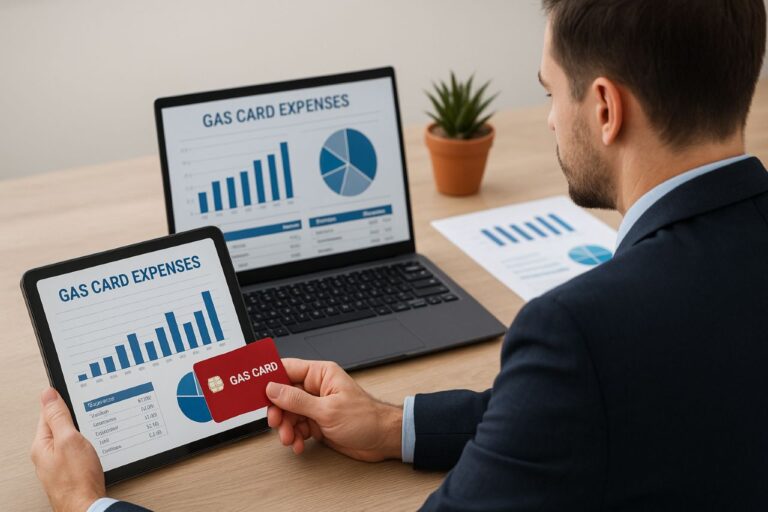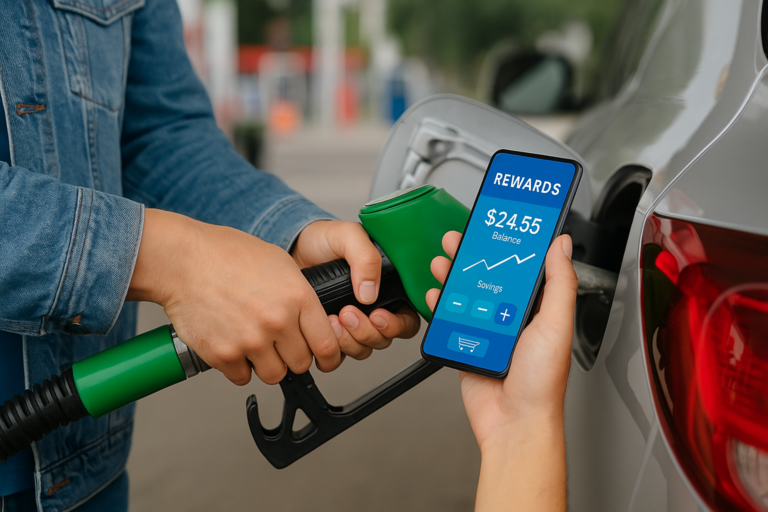Gas Card Assistance Programs: How to Get Free Fuel
With gas rising up and transportation prices hitting family budgets hard, many people are suffering to maintain their tanks full. Whether it’s attending to works, college, or medical appointments, fuel costs can speedily rise. That’s when Gas Card Assistance programs come in, offering much needed financial relief.
These programs offer free or discounted gas cards to help cover gas fees for those in need. From nonprofit organizations to government grants, several resources available to help low-income families and individuals. In this guide, we’ll discover how Gas Card Assistance works, who qualifies, and how to practice.
Table of Contents
What is Gas Card Assistance?
Gas Card Assistance is an assist program designed to assist people and families have enough money gasoline for his or her motors. It generally includes receiving a prepaid gas card or voucher that may be used at selected gas pumps. This type of assistance is mainly treasured for those who rely on personal transportation for work, schools, medical appointments, or everyday errands.
These help programs are supplied by using a variety of resources, which include nonprofit agencies, churches, local charities, and every now and then authorities-funded projects. Some programs focus on selected groups like low-salary employees, unemployed people, veterans, or college students, while others are available to anyone facing financial hardship.
At its core, Gas Card Assistance presents more than just financial help—it gives the freedom to travel, access opportunities, and maintain everyday duties without the consistent worry of fuel prices.
Types of Gas Card Assistance Programs

Gas Card Assistance comes in several bureaucracy, each tailor-made to satisfy different needs. Whether you’re going through temporary problem or navigating long-time financial challenges, understanding the types of programs to be had permit you to find the right type of assist for you.
1. Non-Profit and Charity Programs
Many nonprofit organizations and local charities offer Gas Card Assistance as part of their emergency aid services. These organizations frequently work directly with people who want help, attending to work interviews, scientific appointments, grocery stores, or colleges. They’ll partner with local fuel stations or use donation finances to provide prepaid gas cards. Availability is normally constrained and based on current funding, so applying early or checking regularly is important.
2. Government-Sponsored Support
A few nearby and country authorities’ companies provide transportation help packages that encompass gas cards or gas vouchers. These are usually offered through departments of social services, public welfare, or workforce developers. They intend to support low-earning people, individuals receiving government’ benefits like SNAP or TANF, and those who need assist maintaining employment or gaining access to critical services. Eligibility commonly asks for documentation consisting of evidence of incomes, residence, and identity.
3. Religious and Community Groups
Churches, mosques, synagogues, and communities outreach facilities often provide limited monetary help, consisting of gas cards, to individuals and families in immediate need. These agencies are commonly more flexible and compassionate of their technique, presenting brief assistance without long application processes. Many perform on a referral basis or might also ask for a short conversation with a community chief or pastor to understand your scenario.
4. Workforce and Employment Programs
Organizations focused on job placement and career readiness often offer fuel assistance to help people transition into employment. These also includes job training centers, career counseling services, or employment businesses. Fuel cards in these programs are typically given to assist with transportation to job affairs, interviews, schooling sessions, or the first weeks of labor. While the amount may be modest, they are able to make a significant difference at the time of crucial time.
5. Student and Youth Support Programs
Students, especially those from low-income backgrounds, might also qualify for fuel card assistance through academic nonprofits, youth development programs, or maybe certain scholarships. These cards can be used for commuting to classes, internships, after-school activities, or mentoring programs. Some agencies also include gas cards as a part of their efforts to lessen challenges to schooling and enhance attendance rates.
Eligibility Requirements for Gas Card Assistance
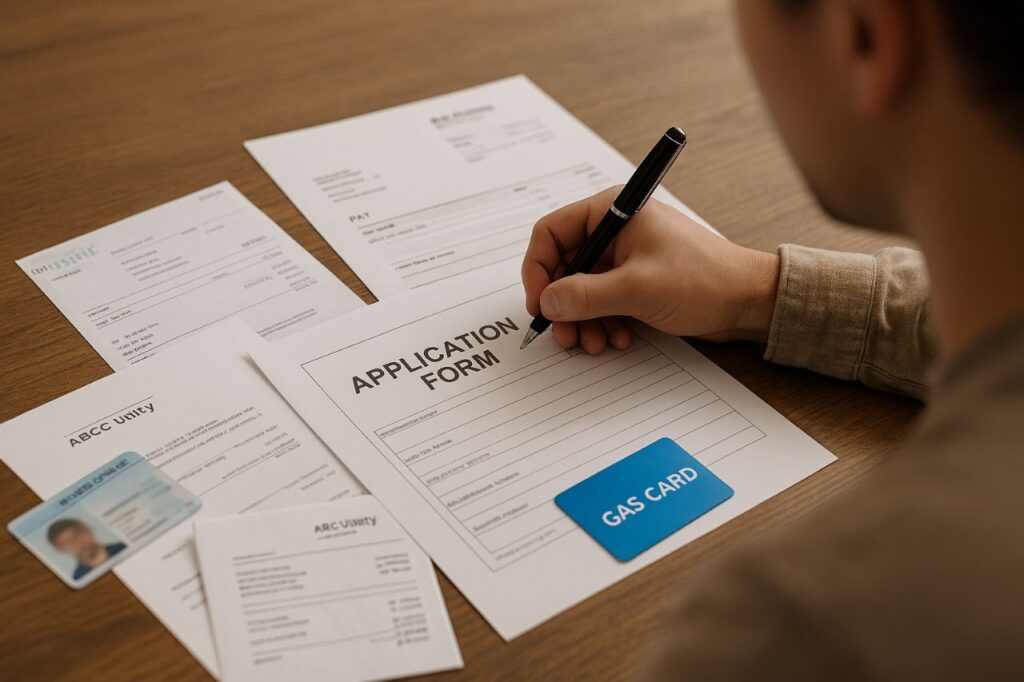
Here’s a list of commonly required eligibility criteria for gas card assistance programs. These can vary slightly by organization or location, but most programs share similar guidelines:
- Proof of Financial Hardship: Most programs require proof of low earnings or monetary trouble. This may include pay stubs, unemployment records, tax returns, or participation in public help programs like SNAP, TANF, or Medicaid.
- Valid Government-Issued ID: A state issued ID, driving license, or other official photo identity is generally had to confirm your identity and residency.
- Proof of Address: Candidates may also need to show that they stay in the place this system serves. Software bills, hire agreements, or legitimate mail can frequently be used as evidence of house.
- Purpose of Assistance: A few programs ask why you need fuel help—whether for work, college, clinical appointments, or emergencies. This facility prioritizes people with vital transportation needs.
- Vehicle Ownership or Access: While no longer always required, many programs expect the applicant to very own or have everyday get admission to a car if you want to use the gasoline card.
- Referral or Case Management (Sometimes): Certain packages—mainly the ones run by nonprofits or church buildings—may additionally require a referral from a social employee, network chief, or case manager.
- One-Time or Limited Use Policy: Many groups permit simplest one gas card per family over a specific time period (e.g., as soon as each 3 or 6 months), to make sure honest distribution.
Top Organizations and Programs Offering Gas Card Assistance
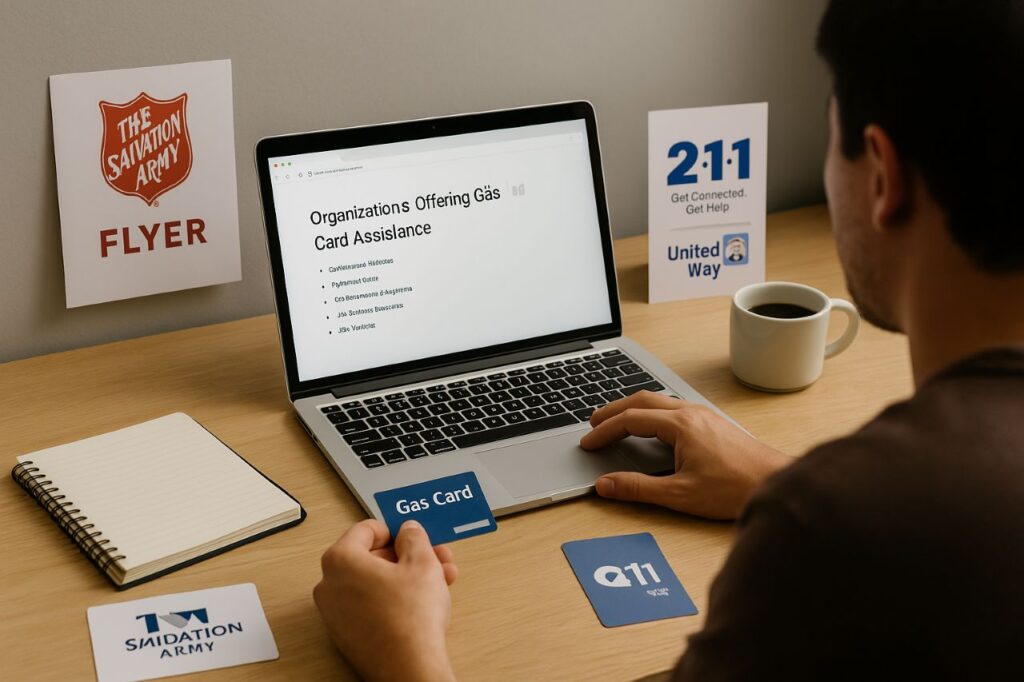
Many nation-wide and local groups offer loose or discounted gas cards to people in need. These programs are generally designed to support individuals dealing with monetary trouble, unemployment, or urgent transportation desires. Below are some of the most reliable and well-known sources for Gas Card Assistance.
1. Salvation Army
The Salvation army is considered one of the most important charitable companies inside the U.S. And often gives fuel vouchers as a part of its emergency help services. Depending on your area, you may be able to get assist with gas expenses in case you’re going through a crisis—consisting of job loss, eviction, or a medical emergency. Go to your local salvation army office or their website to learn more and practice.
2. Catholic Charities
Catholic Charities gives a wide range of support services, including transportation assistance in the form of gas cards or travel vouchers. They prioritize helping low-income households, refugees, and those experiencing homelessness. Services vary by location, so it is best to reach out the closest office to invite about available programs.
3. 211 Helpline (United Way)
Dialing 2-1-1 connects you to a 24/7 helpline operated by using United Way. Their operators can refer you to closest resources offering gas assistance, which includes local nonprofits, churches, and government-funded applications. It’s one of the fastest and easiest methods to discover fuel resource in your area.
4. Local Community Action Agencies
Every nation has community action agencies (CAAs) that provide aid to low-income residents. These corporations may also provide transportation support through prepaid gas cards, bus passes, or mileage reimbursements. They often prioritize candidates who want fuel for job interviews, school, or medical appointments.
5. St. Vincent de Paul Society
This faith- based nonprofit offers emergency aid to people in crisis, and plenty of local chapters include Gas Card Assistance in their services. Help is typically given after an in-person interview or phone consultation, and funds are limited, so early utility is suggested.
6. Modest Needs
Modest needs is an internet nonprofit that offers short-term monetary assist to people who don’t qualify for traditional aid. In case you’re employed however still suffering to find the money for transportation, you may be eligible to apply for a one-time grant that may be used for gas cards or automobile-associated costs.
7. Local Churches and Faith-Based Groups
Many churches and religious companies provide small amounts of emergency help to community members, especially for essentials like food and gas. Despite the fact that a church doesn’t publicly advertise fuel card help, it’s worth calling and asking if they have a benevolence fund or can refer you another useful resource.
8. Veteran and Military Support Organizations
Organizations like the Disabled American Veterans (DAV), Veterans of Foreign Wars (VFW), and local VA offices sometimes provide transportation help, inclusive of gas playing cards, to veterans and active-responsibility military families. Eligibility and availability vary, so make sure to check with your local chapter.
These organizations are a great starting for anyone needing help with fuel costs. Don’t forget, availability and requirements vary by place, so always call ahead or check their websites for most up to date information.
Other Ways to Save on Gas
If you don’t qualify for direct Gas Card Assistance or want extra ways to stretch your fuel budget, right here are other options that help reduce fuel costs:
1. Gas Rewards Apps
Apps like GasBuddy, Upside (formerly GetUpside), Waze, and AAA mobile offer real-time fuel price comparisons and cashback rewards.
- GasBuddy suggests the most inexpensive closest stations and helps you to shop with their Pay with GasBuddy card.
- Upside offers cashback per gallon with partner stations—just check in via the app and add your receipt.
These apps are free and may store frequent drivers loads over time.
2. Grocery Store Discount Cards
Many grocery chains, together with Kroger, and Safeway, offer fuel rewards when you shop.
- You earn points with each buy, which may be redeemed for cents off consistent with gallon at partnered gas stations.
- A few programs stack rewards for even greater savings during promotions.
3. Credit Cards with Gas Cashback
Certain credit cards provide cashback or rewards in particular for fuel purchases.
- Search for cards with 3% to 5% cashback at gasoline stations.
- Some examples include the Citi Custom Cash Card, Chase Freedom Flex, or Sam’s club MasterCard.
Use credit responsibly to keep away from interest charges outweighing your financial savings.
4. Carpooling and Public Transport
Ride-sharing with friends, coworkers, or neighbors can cut gas prices significantly.
- App like Waze Carpool, or local community boards allows you to discover a journey.
- Public transportation, though limited in rural areas, is a reliable option in city settings and frequently subsidized.
5. Fuel-Efficient Driving Tips
Small modifications in how your vehicle can increase mileage:
- Avoid rapid acceleration and heavy braking.
- Maintain tires well inflated.
- Reduce extra weight in your trunk.
- Drive at moderate speeds—using cruise control helps.
- Regular maintenance like oil changes improves performance.
How to Apply for Gas Card Assistance
Applying for Gas Card Assistance feels overwhelming in the beginning; however, the procedure is commonly straightforward once you know where to start. Many nonprofit groups, churches, and community action agencies offer gas vouchers or prepaid gas cards to eligible individuals who are suffering with transportation costs.
Step-by-Step Application Process
1. Identify Available Programs in Your Area
Start by learning local nonprofits, religious groups, or government programs that provide Gas Card Assistance. You can also ask 2-1-1 (United way) or go to their website to get a list of local assets. Many community agencies and social services have listings for transportation help programs.
2. Check Eligibility Requirements
Before than applying, carefully check the eligibility criteria. Most of the programs focus on assisting low-earning individuals, job seekers, veterans, college students, or people going through emergencies including medical problems or domestic violence.
3. Gather Required Documents
Prepare the files that most programs generally ask for:
- A valid photo ID.
- Evidence of earnings or unemployment.
- Proof of residence.
- Vehicle registration or transportation need documentation.
- Supporting documents related with your specific need (e.g., medical appointment letters or job interviews).
4. Submit an Application
Programs may be available online, by phone, or by person. Fill out all sections accurately and provide the requested documents. Some groups require an interview or short consultation to understand you needs better.
5. Follow Up
After filing your application, follow up in case you haven’t heard again in a week or two. Some applications have waiting lists or limited funding, so staying in contact can enhance your chances.
Recommendations to Improve Your Chances
- Be Honest and Clear: Give an explanation for your financial condition honestly and describe why you need gas assistance.
- Apply Early: Many organizations have limited funding and operate on a first-come, first-served basis.
- Ask About Related Resources: If the organization can’t assist with fuel immediately, they will offer or refer you to other types of assistance like bus passes, ride-sharing support, or transportation stipends.
- Stay Organized: Keep copies of your application and documents if you want to reapply or show proof of your request.
Getting help with gas charges could make a massive difference—especially if you rely on a vehicle for work, college, or health care. With little preparation and persistence, many people are able to successfully acquire the support they want.
Common Challenges and How to Overcome Them

Gas Card Assistance is useful, but it’s not always easy to access. Right here are a few common challenges applicants face, and how to cope with them:
1. Long Wait Times for Approval
Some programs, specifically those tied to government agencies or nonprofits, have delays due to high demand.
Tip
Practice early and take check if emergency assistance options are available for urgent situations.
2. Limited Availability in Rural Areas
In remote regions, programs can be scarce.
Tip
Call 2-1-1 or check with regional churches, local United Way branches, or country assistance office—they always know smaller, local resources.
3. Difficulty Finding Legitimate Programs
Scammers target those in need through pretending to provide gas vouchers.
Tip
- Never pay upfront for a gas card.
- Stick with relied on businesses like Salvation Army, United Way, or local government websites.
- Double-check at URLs and search for verified contact data.
4. Language Barriers or Digital Access Issues
Many websites and apps are in English and require online forms.
Tip
- Use libraries or community centers for internet access and translation help.
- Search for bilingual staff or translated materials while contacting nonprofits.
Getting assist might also take more steps, but sources are out there.
Final Thoughts
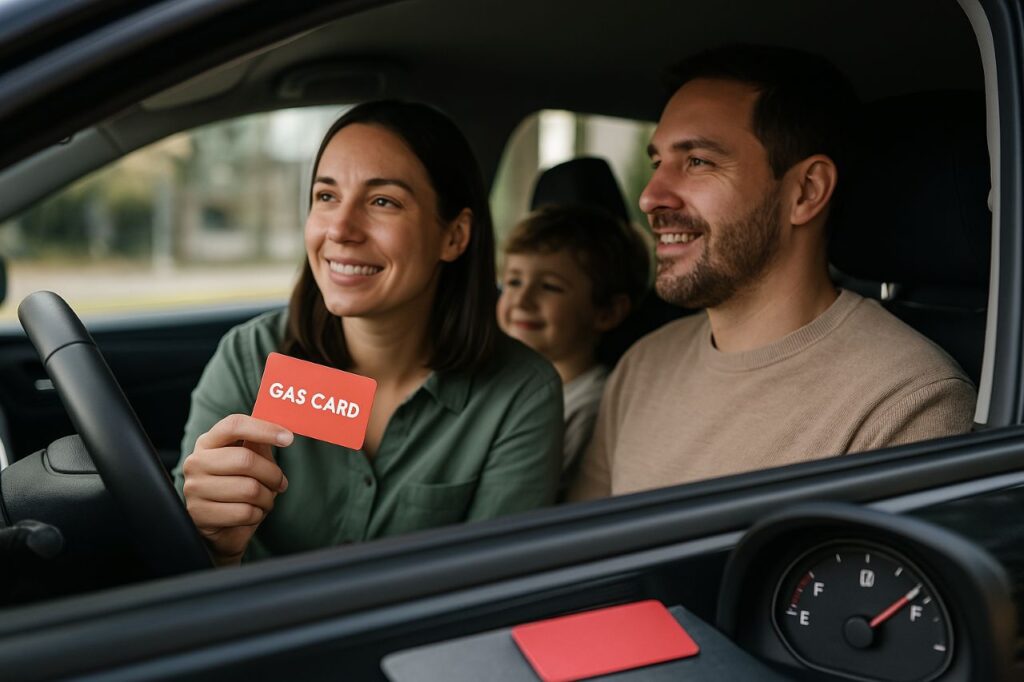
Rising fuel prices and everyday financial struggles can make it difficult to afford something as basic as getting from point A to point B. That’s where gas card assistance programs come in—not as a handout, but as a crucial lifeline for families, students, veterans, job seekers, and anyone facing tough times.
Whether you’re coping with a medical emergency, starting a new job, or simply keeping your car running for everyday errands, there are sources available to assist. From community nonprofits to government-backed programs and smart money-saving apps, a bit of researched and the right support can ease the burden.
Remember you’re not alone, and it’s OK to ask for help. Start local, follow early, and don’t give up—help is available if you know where to look.
Related Articles:
- Fast Stop Gas Card: Save More with Fuel Rewards
- Card Readers on Gas Pumps Explained: Protect Your Data Today
- Gas Cards for Cancer Patients: Unlock Free Fuel Support & Reduce Expenses
- Affordable Gas Cards for Low Income Families
- Can I Use a Gift Card at a Gas Pump? Truth You Need to Know
- Gas Card Help from Churches: Where to Get Emergency Assistance
- Visa Gift Card Hacks: Can You Really Pay for Gas with It?
Frequently Asked Questions (FAQs)
Can I use gas cards at any gas station?
It depends on the card. Some are brand-specific (like Shell or BP), while others are prepaid Visa or MasterCard that can be used anywhere that accepts cards.
Are Gas Card Assistance programs available nationwide?
Some are national, but many are local or regional. It’s best to check with your county’s social services office or call 2-1-1 for up-to-date information in your area.
How often can I receive gas assistance?
This varies by program. Some allow monthly or quarterly help, while others are one-time emergency grants. Always ask about renewal or reapplication rules.
Do gas vouchers expire?
Yes, most have expiration dates—usually 30 to 90 days. Be sure to use them promptly and read the fine print.
Is this a one-time benefit or recurring?
Some programs offer recurring support, especially for medical or job-related travel. Others provide a single-use card per household or crisis event.
Can I apply if I don’t have a car but need to travel?
Yes—some programs help with ride-share credits, bus passes, or offer fuel support for a driver helping you, especially for medical appointments.
What documents do I need to apply for gas assistance?
Typically, you’ll need:
1. Photo ID.
2. Proof of income or need.
3. Reason for travel (job interview, medical visit, etc.).
4. Vehicle registration or license (in some cases).






